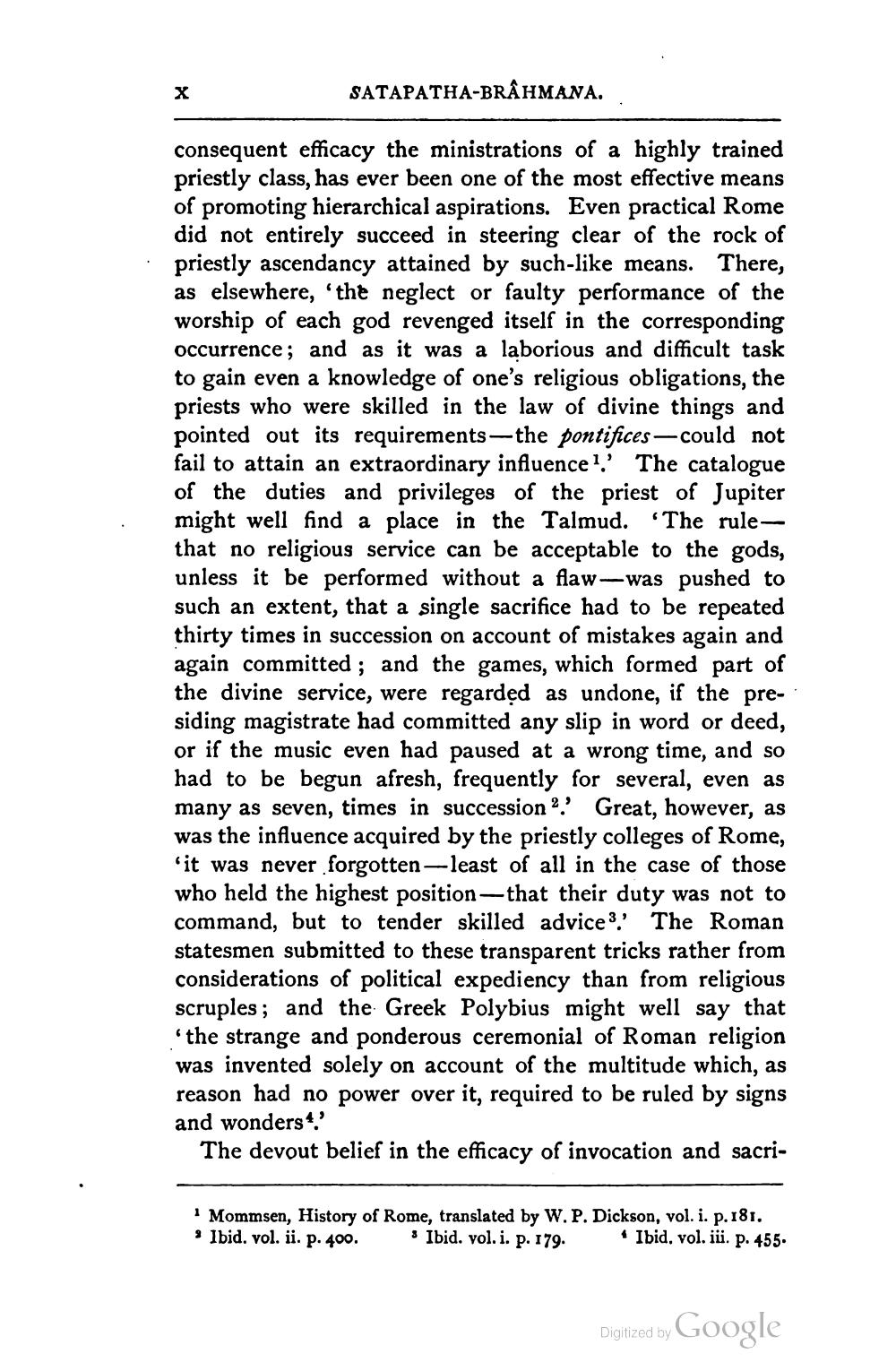________________
X
SATAPATHA-BRAHMANA.
consequent efficacy the ministrations of a highly trained priestly class, has ever been one of the most effective means of promoting hierarchical aspirations. Even practical Rome did not entirely succeed in steering clear of the rock of priestly ascendancy attained by such-like means. There, as elsewhere, 'the neglect or faulty performance of the worship of each god revenged itself in the corresponding occurrence; and as it was a laborious and difficult task to gain even a knowledge of one's religious obligations, the priests who were skilled in the law of divine things and pointed out its requirements-the pontifices-could not fail to attain an extraordinary influence1.' The catalogue of the duties and privileges of the priest of Jupiter might well find a place in the Talmud. The rulethat no religious service can be acceptable to the gods, unless it be performed without a flaw-was pushed to such an extent, that a single sacrifice had to be repeated thirty times in succession on account of mistakes again and again committed; and the games, which formed part of the divine service, were regarded as undone, if the presiding magistrate had committed any slip in word or deed, or if the music even had paused at a wrong time, and so had to be begun afresh, frequently for several, even as many as seven, times in succession 2. Great, however, as was the influence acquired by the priestly colleges of Rome, 'it was never forgotten-least of all in the case of those who held the highest position-that their duty was not to command, but to tender skilled advice. The Roman statesmen submitted to these transparent tricks rather from considerations of political expediency than from religious scruples; and the Greek Polybius might well say that 'the strange and ponderous ceremonial of Roman religion was invented solely on account of the multitude which, as reason had no power over it, required to be ruled by signs and wonders1.'
The devout belief in the efficacy of invocation and sacri
1 Mommsen, History of Rome, translated by W. P. Dickson, vol. i. p. 181. Ibid. vol. ii. p. 400. Ibid. vol. i. p. 179.
Ibid. vol. iii. p. 455.
Google
Digitized by




